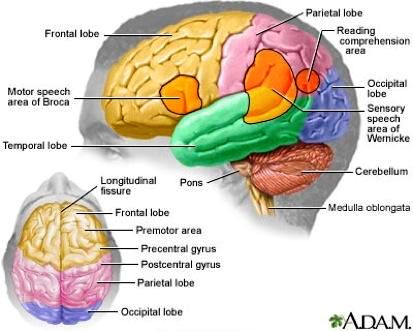Smart Foods: The Science of Brain Nutrition So Far

My clients regularly ask me: Are there foods which help my brain? My answer: Yes! What you eat profoundly affects your brain, memory, and mental acuity.
"Nutrients are essential for brain function," said Martha Clare Morris, at a National Institutes of Health conference on brain function and preventing cognitive decline.
"The dietary components with the strongest evidence to date for dementia prevention include antioxidant nutrients, fat composition, and B vitamins," said Morris, director of Nutrition and Nutritional Epidemiology at Rush Medical College in Chicago.
Antioxidant Nutrients
"The brain is particularly vulnerable to oxidative damage due to its high metabolic activity and the presence of relatively few antioxidant enzymes ... Antioxidant nutrients (vitamin E, vitamin C, carotenoids, flavonoids) are a natural defense mechanism ... Of the antioxidant nutrients, the evidence for brain protection is strongest for vitamin E; that for carotenoids, vitamin C, and flavonoids is limited and inconsistent but promising," said Morris.
But when it comes to nutrients, both too little or too much can be dangerous. So I recommend you get those nutrients from food, not supplements, which can be harmful if taken in doses which disturb your body's natural nutrient balance.
Some examples of foods high in brain-protecting antioxidant nutrients:
Vitamin E: Sunflower seeds, almonds, sunflower oil, safflower oil, canola oil, hazelnuts, pine nuts, spinach, turnip greens, beet greens, dandelion greens, canned pumpkin, carrot juice, broccoli, sweet potato, sweet red peppers, mangos, papayas
Carotenoids, such as Beta-Carotene (orange), Lycopene (red), and Lutein (yellow/green): Orange, red, and deep green veggies and fruits, particularly … Carrot juice, carrots, butternut squash, pumpkin (or any orange-colored winter squash), sweet potato, greens such as spinach, collards, kale, turnip greens, beet greens, avocados, orange melons such as cantaloupe, red peppers, apricots, broccoli, plums, mangos papayas, plantains, Brussels sprouts, watermelon, asparagus, tomatoes, watermelon, pistachios
Vitamin C: Citrus fruits such as orange, lemons and grapefruit, peaches, sweet and hot peppers, papayas, pineapple, strawberries, broccoli,kiwi fruit, sweet potatoes, Brussels sprouts, kohlrabi
Flavonoids: Cocoa, green and black tea, citrus fruits, dark chocolate, red wine, apples, grapes, berries, numerous fruits and vegetables
Fat Composition
Fat is an essential nutrient. But the type of fat you eat trumps everything. Fat ends up in all of your body’s cells, including your brain cells. It acts as a cell lubricant, improves flexibility and communication between cells.
Learn more about brain-healthy fats, B Vitamins, and the proven brain-healthy lifestyle.
